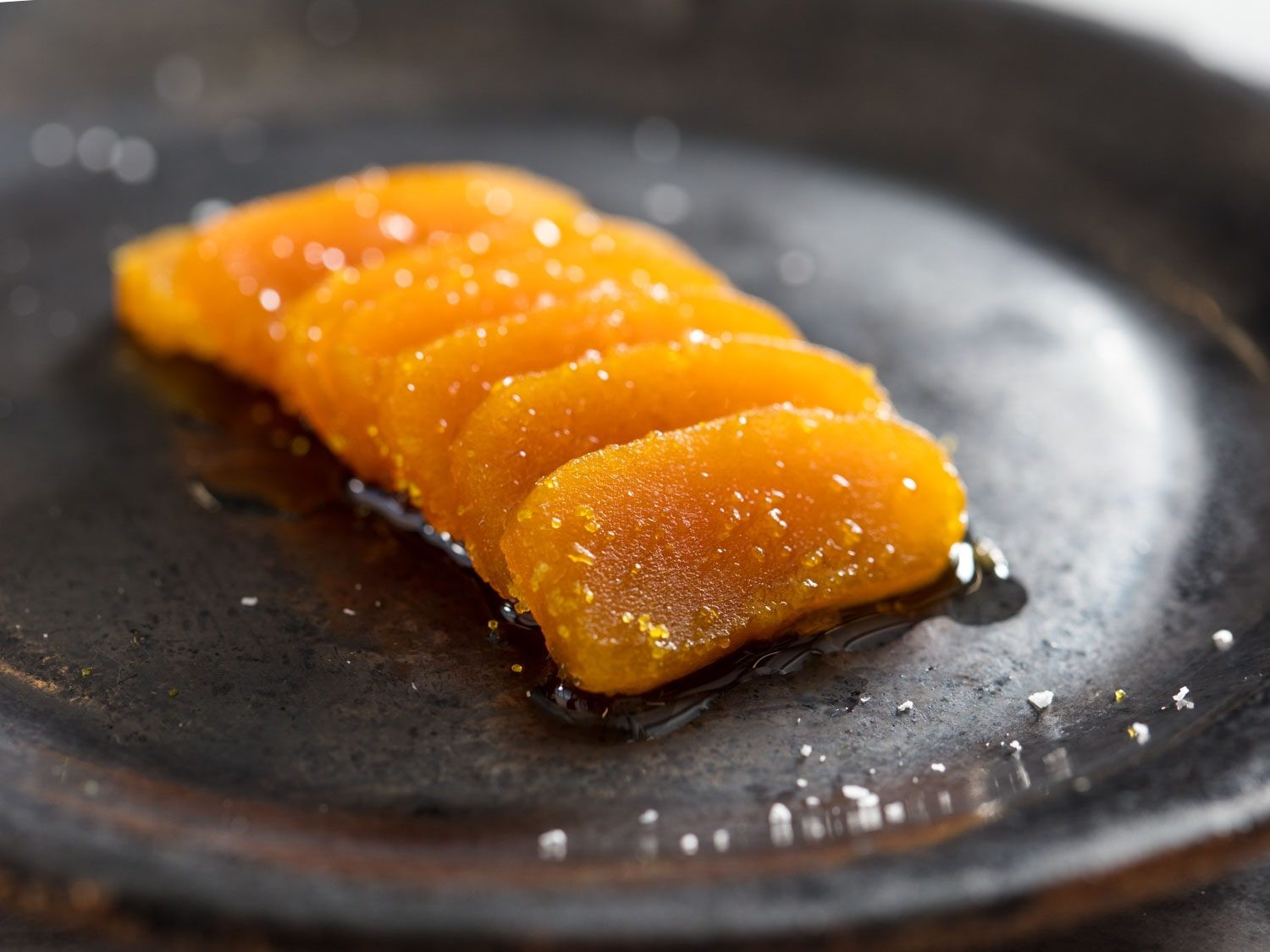What is grey mullet bottarga’s history?
This method for preserving the roe sacs of grey mullet is thought by the Phoenicians and spread it to Egypt. The first practice of the roe is found in Egypt. Egypt is also thought by many to be the origin point of bottarga for the wider world since the word "bottarga" has come from the Arabic word "butarkhah," which in turn is derived from Coptic.
According to Andrew Dalby, bottarga was also enjoyed by the inhabitants of Byzantium, which was colonized by the Greeks in around 600 BCE. As he writes in Tastes of Byzantium: The Cuisine of a Legendary Empire, "In addition to all the seafood delicacies known to classical Greece, the Byzantines appreciated salted greymullet [sic] roe, ootarikhon (literally 'egg pickle': the Greek word is the source of Coptic outarakhon and thus of Arabic butarkhah.
Bottarga and the method of making it was transmitted to civilizations all along the Silk Road, ending up in the Far East, China, South Korea, and Japan, and in the West, including what is now Italy. It is discussed in Libro de Arte Coquinaria, a book of Italian medieval cookery written around 1465 by Martino de Rossi, who is also known as "the prince of chefs" or, more "the world's first celebrity chef."
Many of the recipes in the book, which has been translated, outfitted with additional recipes, and published by the University of California Press as The Art of Cooking: The First Modern Cookery Book, were copied entirely by Bartolomeo Sacchi in his gastronomical treatise De honesta voluptate et valetudine, which has the distinction of being the first cookbook ever printed.
The prince of chefs describes the process of making bottarga; “use very fresh roe, cure it with salt, press it, then dry and offers just a small note on how to eat it: Bottarga is generally eaten raw, but those who wish to cook it can do so by heating it under ashes or on a clean, hot hearth, turning it over until it is hot all the way through."

Samuel Pepys, whose detailed diary has offered up to a history a clear view of life in England in the latter half of 17th century, mentions bottarga in an accounting of a fine-sounding summer night's activities in the diary entry from June 5, 1661: "So home Sir William and I, and it being very hot weather I took my flageolette and played upon the leads in the garden, where Sir W. Pen came out in his shirt into his leads, and there we staid talking, singing and eating botargo and bread, butter till 12 at night, it being moonshine; and so to bed, very near fuddled."
